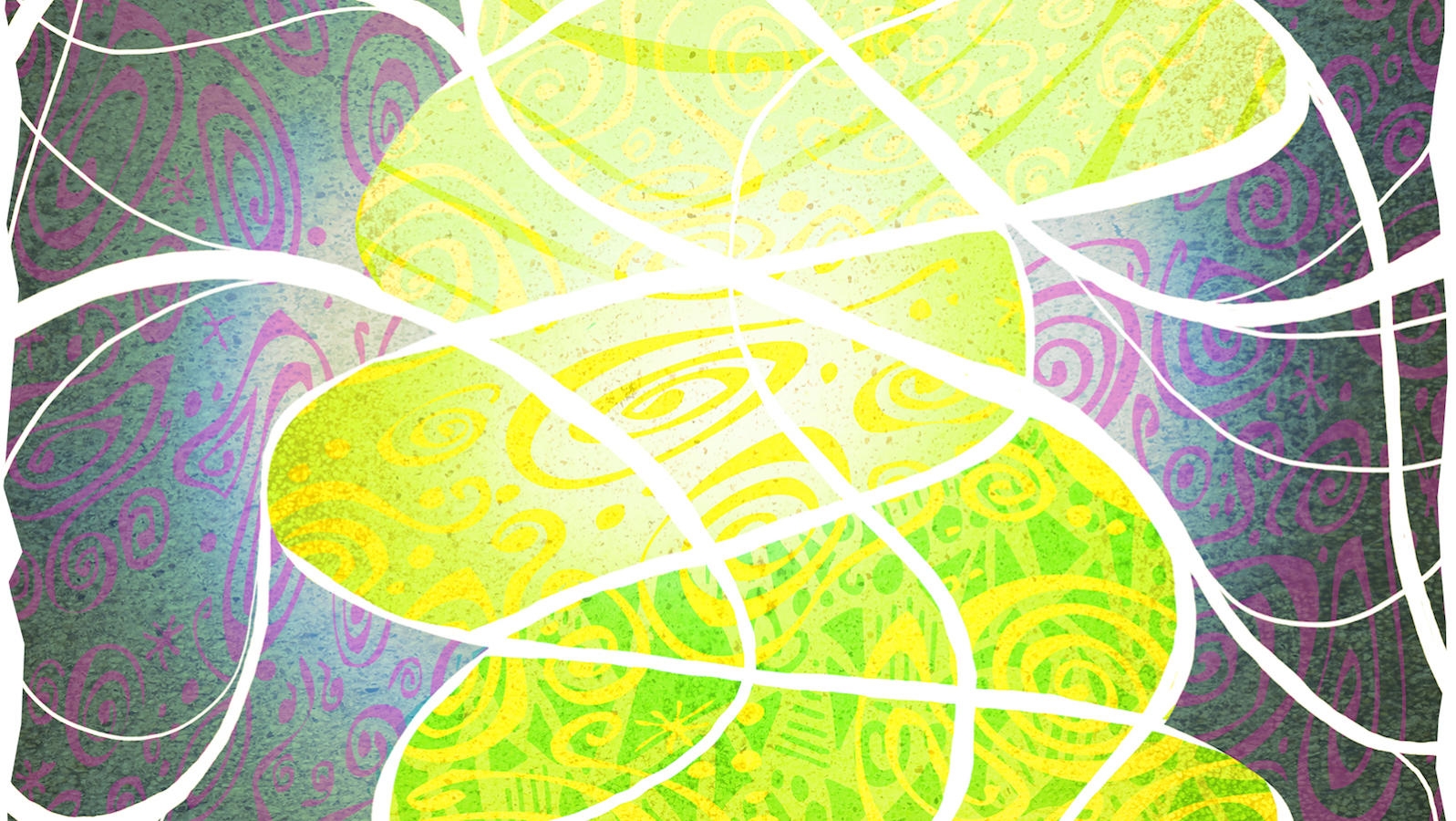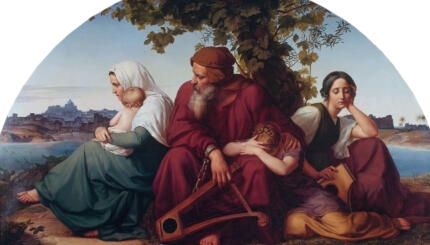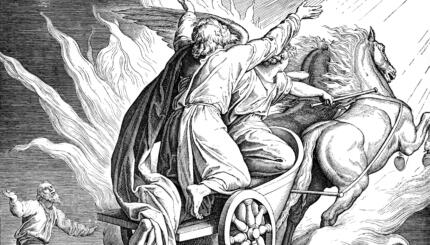Commentary on Parashat Pekudei, Exodus 38:21 - 40:38
The closing portion of the Book of Exodus focuses on the construction of the portable desert Tabernacle or the Tent of Meeting, the Mishkan. The final verses read:
…When Moses had finished the work, the cloud covered the Tent of Meeting, and the Presence of God filled the Tabernacle. Moses could not enter the Tent of Meeting, because the cloud had settled upon it and the Presence of the God filled the Tabernacle… over the Tabernacle the cloud of God rested by day, and fire would appear in it by night, in the view of all the house of Israel throughout their journeys. (Exodus 40:33-38)
So strange that Moses, after dedicating years to connecting the Israelites to God, can’t enter into the very structure he has helped create for that same purpose. And why? Because there isn’t room. God’s presence is so filling that there just isn’t room for anyone. Even Moses. What must it have felt like to be Moses, closed out of the very place he could have received the ultimate validation, the deepest comfort in the face of ongoing hardship and a stiff-necked nation?
Consider, for a moment, the Jewish mystical notion of Tzimtzum, contraction. Jewish mysticism teaches that, in order to create the world, God needed to not be everywhere and everything. After all, how could anything independent exist if God were everywhere and everything? And so, God pulled back some of God’s self in order to provide physical space and spiritual independence. The Infinite had to contract to made room for the finite. Tzimtzum helps address questions regarding free will, suffering and existence.
The same model holds true for human relationships. I think of my precious children. If I hadn’t acknowledged the need for parental Tzimtzum, restraining myself enough to give them the room to make their own decisions — decisions that I might not make nor approve of — I wouldn’t have been prepared to have a child. Similarly, when we do not practice Tzimtzum and acknowledge the independence of others to act and think on their own, we miss the opportunity to model sacred relationship. A healthy relationship includes Tzimtzum and is infused with the obligation to grant each other the right to inhabit their own place in the world. (In truth, your space isn’t mine to grant in the first place. It is yours regardless of my acknowledgment.)

Help us keep Jewish knowledge accessible to millions of people around the world.
Your donation to My Jewish Learning fuels endless journeys of Jewish discovery. With your help, My Jewish Learning can continue to provide nonstop opportunities for learning, connection and growth.
What do we learn from the end of Exodus? That the act of losing one’s self in a rapturous, sacred moment holds the potential to exclude others. That even the holiest of intentions can disrupt a relationship when mishandled.
A brief glimpse ahead to the next book of the Torah might help illuminate the path forward. The very first verse of Leviticus reads: “God VaYikra/Called to Moses and spoke to him from the Tent of Meeting…” (Leviticus 1:1) There is a peculiarity to the way scribes calligraph the word “VaYikra/called.” The letter aleph (the final letter in the biblical Hebrew word “Vayikra”) is traditionally written much smaller than the other letters. One of the explanations of the small aleph is that, originally, the Torah was written without spaces between the words. The aleph became lost between the words. Our small aleph is the result of scribal tzimtzum. The scribes found room to allow a letter to exist.
READ: The Making of a Torah Scroll
And so, perhaps we might imagine that the tenor of God’s call to Moses in Leviticus is the result of God witnessing Moses’ inability to connect at the end of Exodus. Perhaps the small aleph is a physical representation of God contracting just a bit, consciously making room for a sacred partner.
Tzimtzum is the heart of a mindful, relational Jewish practice. When I recognize the power of someone close to self-determine, my life changes. I become freer. As we read in Psalms: “Please God, for I am your servant, the child of your servant. You have freed me from my chains.” (Psalms 116:16)
The end of Exodus describes God as an inaccessible partner. The beginning of Leviticus describes God’s space-giving call. We can glean from this juxtaposition of verses that the deepest intimacy can be simultaneously binding and freeing, that we can learn from each experience to nurture that deepest of connections. Whereas the Exodus journey ends this week with no room for Moses, the small aleph of Leviticus re-invites Moses — and each of us too — into a gift of deepening sacred intimacy.



